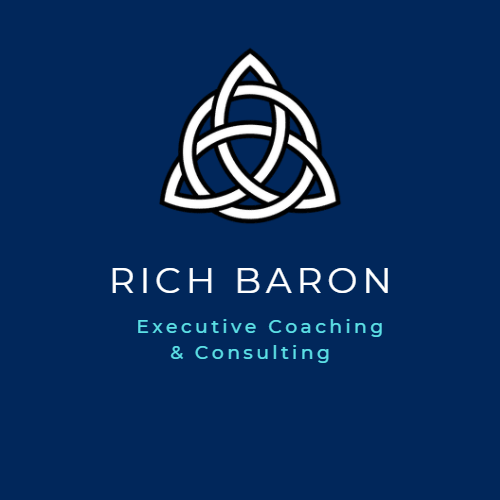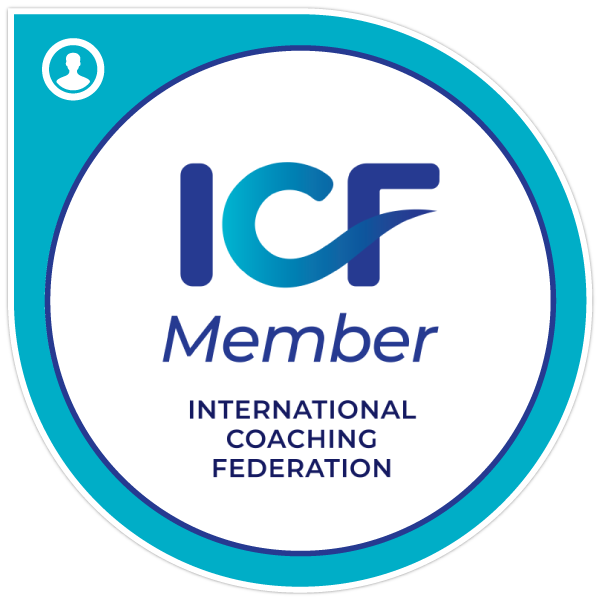Perfectionism is Imperfect
Rich Baron • April 4, 2024
For surface shine, 80% might be more than enough. After that, the tweaking is for us, not those we seek to serve. – Seth Godin
Have you ever sat for hours, tweaking a piece of work? When it’s almost done you need to fix “just one more thing”? That one more thing becomes several more things until the finished product doesn’t even resemble what our initial intentions were. Not only does it become something we may not recognize, but how much wasted time was used in a futile attempt to get it just right?
How about perfectionism as a leader? Your team’s work is never right until you give the final approval and then you must tweak their work to your satisfaction. If this sounds like you, you are not alone. There are perfectionist leaders in just about every workplace imaginable.
Two Types of Perfectionist Leaders
In my experience, there are two types of perfectionist leaders. The first type is the mature and prominent perfectionist. These perfectionists make excellent leaders due to their strong ethical principles and sense of right and wrong. They are trustworthy, reliable, and unwilling to take shortcuts, earning the trust of both employees and customers. These perfectionists are fair and objective decision-makers, treating all individuals equally and making decisions based on merit rather than personal relationships. They are also compassionate and understanding of human imperfections, striving for high-quality standards while acknowledging that perfection is unattainable. They prioritize delivering a product on time with a high-quality rating rather than delaying perfection indefinitely.
Mature perfectionist leaders understand that 80% to 90% of a goal is realistic and achievable. They do not set unrealistic or unattainable goals for themselves or their teams. Instead, they focus on setting goals that are challenging yet realistic, knowing that they are more likely to succeed and maintain motivation and momentum when the goal is within reach. By setting realistic goals, healthy leaders can foster a positive and productive work environment, build trust and confidence within their team, and ultimately drive successful outcomes.
The second type of perfectionist cannot see the big picture because they are too focused on making sure every tiny detail is flawless. This often leads to them getting bogged down in the minutiae and losing sight of the overall goal or objective. Instead of seeing the forest for the trees, they are fixated on each tree and may struggle to see how they all fit together. This narrow focus can hinder their ability to make strategic decisions or see alternative solutions, ultimately limiting their effectiveness in achieving success on a larger scale.
Immature perfectionist leaders can create problems because they tend to focus on minor details and expect everything to be perfect, which can lead to micromanagement, lack of delegation, and decreased team morale. They may also struggle with taking risks and making decisions quickly, which can hinder progress and innovation. Additionally, their high standards can be unattainable and lead to unrealistic expectations for themselves and their team members. This can create a stressful work environment and ultimately hinder productivity and success.
No process or person is perfect, and striving for perfection can be unhealthy and unrealistic. It's more important to focus on personal growth and self-acceptance rather than striving for an unattainable ideal or situation.
Case in Point
Bacillus Stearothermophilus is a rod-shaped, non-pathogenic, thermophilic, aerobic, spore-forming bacterium. It is a common inhabitant of soil, hot springs, desert sand, Arctic waters, ocean sediments, food, and compost. It can be found just about anywhere. Bacillus Stearothermophilus is extremely hard to kill, so hard to kill in fact that it is the target organism for the sterilization of medical devices. During my 20-plus-year career in medical devices, Bacillus Stearothermophilus was the target organism used to validate our sterilization process.
All our products were sterilized in a dynamic-air-removal steam sterilizer. Dynamic-air-removal sterilization cycles can be either a pre-vacuum cycle, in which case air is actively removed by a series of pressure and vacuum phases before admission of steam, or by steam-flush-pressure pulsing (SFPP) in which case a series of steam flushes and pulses of pressure. To validate that the sterilization process works, we use a system called a decimal reduction time, or a D-value.
A D-value is what it takes to kill 90% of the present Bacillus Stearothermophilus under specified conditions (time, sterilant, exposure temperature, relative humidity, pressure, package density, etc.). One D-value equals 20 seconds at 275° F, at 60 PSI, with a humidity ≥ 97%, which will kill 90% of the present Bacillus Stearothermophilus. To obtain sterilization, we would hold the product in the sterilization cycle for 4 minutes, or 12 D-Values. So, what do the results look like? The following shows the amount of all present Bacillus Stearothermophilus killed after each D-value.
• 90% of all present Bacillus Stearothermophilus has been killed...
• 99%
• 99.9%
• 99.99%
• 99.999%
• 99.9999%
• 99.99999%
• 99.999999%
• 99.9999999%
• 99.99999999%
• 99.999999999%
• 99.9999999999%
This equals 99 and 10 billionth percent sterile (99.000000001%), 100% is not possible.
We could go on for as many D-values as we want but will never obtain 100 % complete sterilization. So, does this mean that the product is not sterile, or safe to use? Remember that Bacillus Stearothermophilus is non-pathogenic, and if that organism is dead, so is everything else. So, the answer is yes, it is sterile and safe to use. Or perhaps did you just see that it was not 100% and triggered a nerve?
Learning to be the Mature Perfectionist Leader
1. It is important to learn to relax and not be so intense in your pursuit of continuous improvement, as this intensity may intimidate others. Understand that everything won't fall apart if you don't address every issue immediately. Strive for excellence rather than perfection and take time to appreciate your achievements by slowing down.
2. It is important to be open to listening to the perspectives of others. Your coworkers may offer valuable insights that you may not have considered. By actively listening to others, you can increase your chances of success and make progress toward achieving your goals.
3. Take the time to be patient and listen to others, as what may be clear to you may not be as obvious to them. Demonstrating patience can help you earn respect from others while reacting with frustration or anger can result in resentment and contempt.
4. Acknowledge that there are different perspectives and approaches. It is common to feel frustrated when others do not conform to your expectations. It is important to understand that your idea of the correct way may vary from others. Both parties can be correct, as there are often multiple acceptable methods to achieve the same outcome.
5. Keep in mind that nobody is perfect, and that includes you. Instead of being overly critical of others, try to be more understanding and acknowledge your faults and imperfections.
6. Stop aiming for perfection. Your
extremely high standards frustrate people and make it difficult for you to meet deadlines. Instead, learn to be satisfied with doing your best. You don't have to be flawless to be a great leader.
Wrapping Up
The problem with perfectionism is the unrealistic quest for standards, not only for ourselves but for others as well. This quest leads to feelings of dissatisfaction, anxiety, and stress. Perfectionists often struggle to accept mistakes or imperfections, which can negatively impact their relationships, work performance, and overall well-being. Additionally, the constant pursuit of perfection can prevent them from taking risks, trying new things, and ultimately experiencing personal growth and fulfillment. Perfectionists need to learn how to embrace imperfection, practice self-compassion, and prioritize their mental and emotional health. Trust me, your teams will thank you for it!
Do you want to find out if perfectionism is one of your strengths or gaps, reach out to me here.
About the Author
Rich Baron serves as the Chief Operating Officer and Director of the Global Coaching Project at John Mattone Global, where he also holds the title of Master Certified Intelligent Leadership Executive Coach. With over 30 years of rich experience in cultural transformation, operational leadership, executive roles, and coaching leaders at every level—from emerging talents to seasoned CEOs—Rich has a demonstrated track record of success.
Rich co-hosts "Mainline Executive Coaching ACT," a podcast that is recognized by Feedspot as the leading Executive Coaching Podcast worldwide. The podcast's acclaim is based on an evaluation of numerous factors, including web traffic, social media followers, and timeliness. It boasts an impressive following in more than 85 countries and over 850 cities globally.




